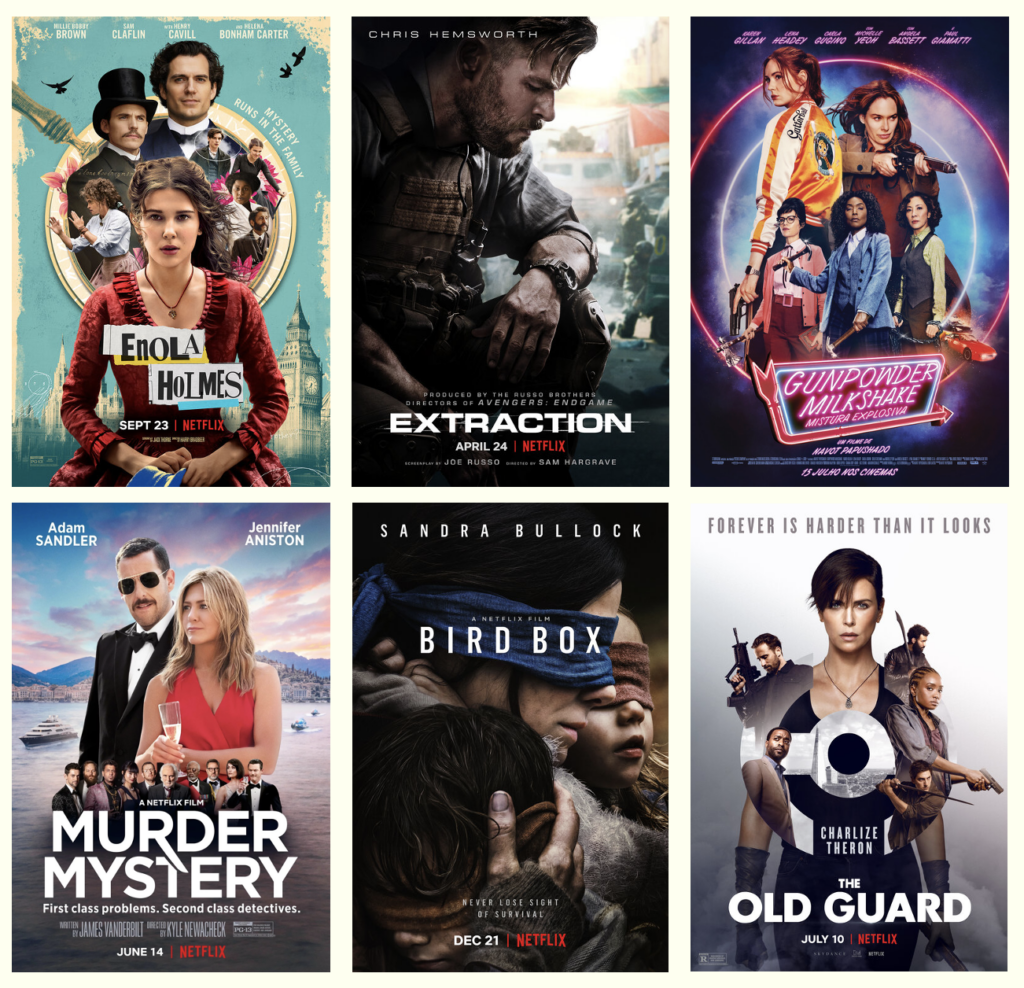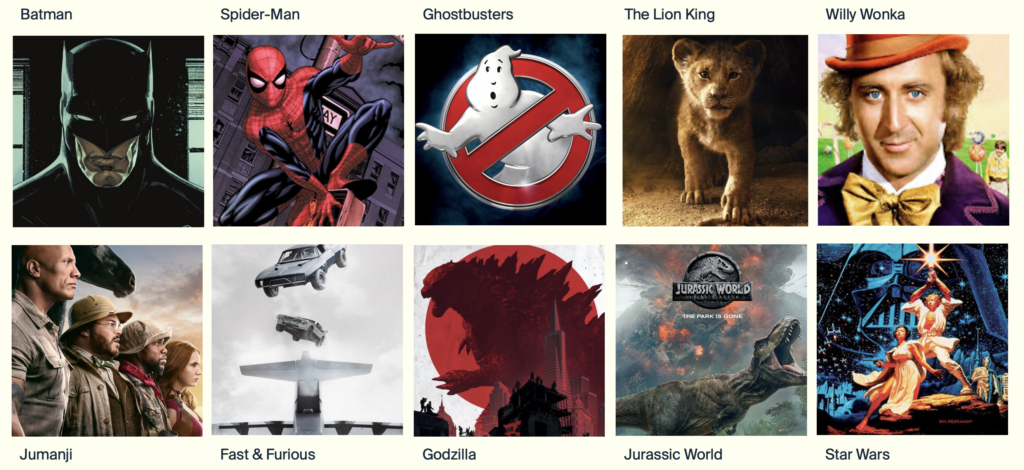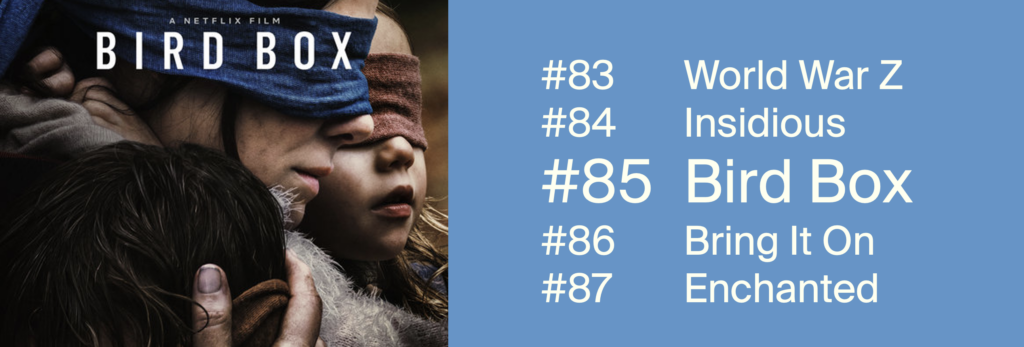What do these six films have in common?
These are all Netflix movies with sequels in development. Aside from a handful of titles (THE KISSING BOOTH, THE CHRISTMAS CHRONICLES), Netflix hasn’t played in the franchise sandbox. Today, Netflix is greenlighting sequels to larger-budget, star-driven films.

The appeal of franchises is that they already have a baked-in audience. Or at least they’re supposed to. But the data shows that these Netflix titles have significantly lower levels of audience awareness than franchises from traditional studios.
Each week, The Quorum surveys people about theatrical and streaming franchises. Our Franchise Index does not look at individual films, but the parent franchises. To date, we have polled over 20,000 people, and we have collected data on over 130 franchises. To see the full chart, email [email protected].
First, let’s define a franchise. We define it as any film that yields a sequel. Hard stop. Our survey includes franchises with sequels in production (JOHN WICK, THE HUNGER GAMES, TRANSFORMERS) as well as those with films in development that may never see the light of day (BEETLEJUICE, FACE/OFF, SISTER ACT).
We ask a series of questions, but we start by asking about series familiarity. Of the 130+ franchises, these are the ten with the highest awareness.

Though WILLY WONKA may be a bit of a surprise, the films in the top ten make sense. All of these have awareness above 93%. Note, AVATAR, which has been on the rise of late, sits just outside the top ten at #11.
What’s not surprising is the lack of Netflix titles at the top of the list. It’s hard to imagine a Netflix franchise that would even come close. In fact, only one Netflix franchise ranks among the top 100. That’s right, only one. Coming in at #85 is BIRD BOX, just below INSIDIOUS and above BRING IT ON.

After BIRD BOX, the next highest scoring Netflix series is MURDER MYSTERY at #103.

There are several reasons why Netflix titles have such low awareness, but it’s the lack of long-lead marketing campaigns that likely tops the list. Consider DC LEAGUE OF SUPER PETS. Warner Bros. released the first trailer in November, a full nine months before its release. Yesterday, we got a third (!) trailer with three months to go before its July 29th release date.
Now compare that to THE GRAY MAN at Netflix. The $200M franchise-starter, directed by Anthony and Joe Russo and starring Ryan Gosling, Chris Evans, Regé-Jean Page, and Ana de Armas, is eight weeks away from release, and we still don’t have a trailer. We don’t even have a poster. Heck, up until last week, it didn’t even have an official release date.
Yes, some people feel that long-lead campaigns only reach a small core audience; that most people learn about a film in the final three weeks before release. That may be true, but franchises need that core audience as a foundation. For those that discover the film early in the campaign, the road to release leads to increasing levels of anticipation and excitement.
Need proof? At 13%, THE GRAY MAN ranks 44th in awareness among the 58 films currently being tracked by The Quorum. That’s a shockingly low number for a movie of that size.
That leads us to the second reason Netflix has trouble building the long-lasting property awareness needed to launch a franchise. Watching a film at home is a far more passive experience than driving to a theater, buying a ticket, getting popcorn, finding your seat, then watching the movie in a communal setting.
Minus the long-lead marketing and the active participation of going to a theater, you can watch a film on Netflix one night then forget that you saw it the following day. It doesn’t help that you’re bombarded with the never-ending parade of new shows on your Netflix carousel. There is no buildup to watching the film and no residual after effect.
How does Netflix get around this? By moving beyond its token awards-qualiƒying screenings and taking full advantage of the power of the theatrical experience and the value it builds into franchise worthy titles. That means planting a flag on the release schedule months, if not years, before release. It means a layered long-lead campaign.
It also means reporting box office numbers. Part of the communal experience of seeing a movie in a theater is knowing that you contributed to its weekend gross. There is a special bond among filmgoers when they learn that a film was a huge box office hit.
Netflix has been successful for many years by creating its own rules. But those have proven to be antithetical to franchise building. If Netflix wants to be in the sequel space, it would be wise to play by the rules of the studios that have it down to a science.

 © 2024 The Quorum, LLC, All Rights Reserved.
© 2024 The Quorum, LLC, All Rights Reserved.